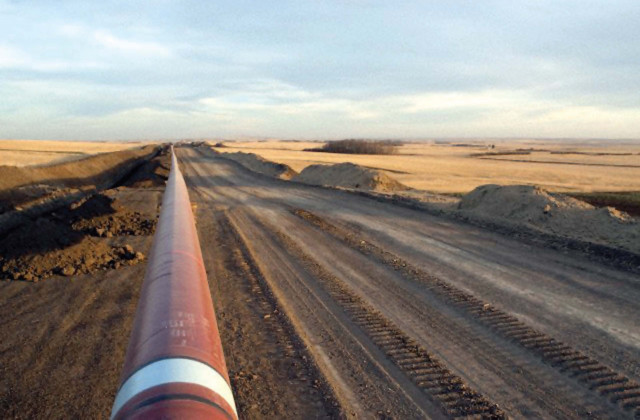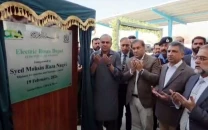Turkmenistan agrees gas price with Pakistan
The Turkmen government sources declined to give details of the price.

The Turkmen government sources declined to give details of the price and did not comment on whether volumes had also been agreed. Like most officials in the secretive former Soviet state, they spoke on condition of anonymity.
One of the sources said that the two countries had yet to agree with Afghanistan on a transit price for the gas.
Turkmenistan, which sits on the world's fourth-largest natural gas reserves, wants to build the trans-Afghan pipeline as part of its plans to diversify sales from Soviet-era master Russia to energy-hungry markets in Asia and Europe.
It aims to supply natural gas from its South Iolotan field, the world's second-largest, to Pakistan and India. The idea of the pipeline, known as TAPI, was first raised in the mid-1990s, but construction has yet to begin.
The proposed 1,700-km pipeline could carry 1 trillion cubic metres of Turkmen gas over a 30-year period, Turkmen Oil and Gas Minister Bayramgeldy Nedirov said this month, which would work out at 33 billion cubic metres a year.
But the route, particularly the 735-km Afghan leg, presents significant security challenges and will require Pakistan and India to agree on volumes and price. Participants must also secure funding for the project.
State-owned newspaper Neutral Turkmenistan reported on Tuesday that President Kurbanguly Berdymukhameov had signed a joint declaration with Pakistan on the sale and purchase of gas via the TAPI pipeline.
The newspaper reported that Berdymukhamedov, whose word is final in reclusive Turkmenistan, had agreed the deal during a visit to Islamabad on Monday, where he met Pakistani President Asif Ali Zardari and Prime Minister Yousaf Razi Gilani.
Price negotiations with India, the final country on the pipeline route, are being conducted separately.
Asked about the content of the Islamabad declaration, the government source said: "We have already agreed on the price.
The agreement is prepared. The contract is prepared. Only some procedural issues remain."
The second government source said that, while Turkmenistan and Pakistan had in principle agreed a price, a question mark remained over the transit price via Afghanistan.
Turkmenistan's policy is to sell its gas at the border, while Pakistan planned to buy the Turkmen gas at its own border with Afghanistan, the second source said.
Pakistan and India, which would consume most of the gas supplied via the pipeline, have previously said they were close to signing a supply deal with Turkmenistan.
An intergovernmental agreement signed in the Turkmen capital Ashgabat in December contained no specific provisions for security, volumes or gas prices.
Turkmenistan envisages that gas for the pipeline would be supplied by its South Iolotan field, ranked by British auditor Gaffney, Cline & Associates last month as the second-largest in the world behind Iran's South Pars deposit.
The auditor said South Iolotan contained between 13.1 trillion and 21.2 trillion cubic metres of natural gas.



















COMMENTS
Comments are moderated and generally will be posted if they are on-topic and not abusive.
For more information, please see our Comments FAQ